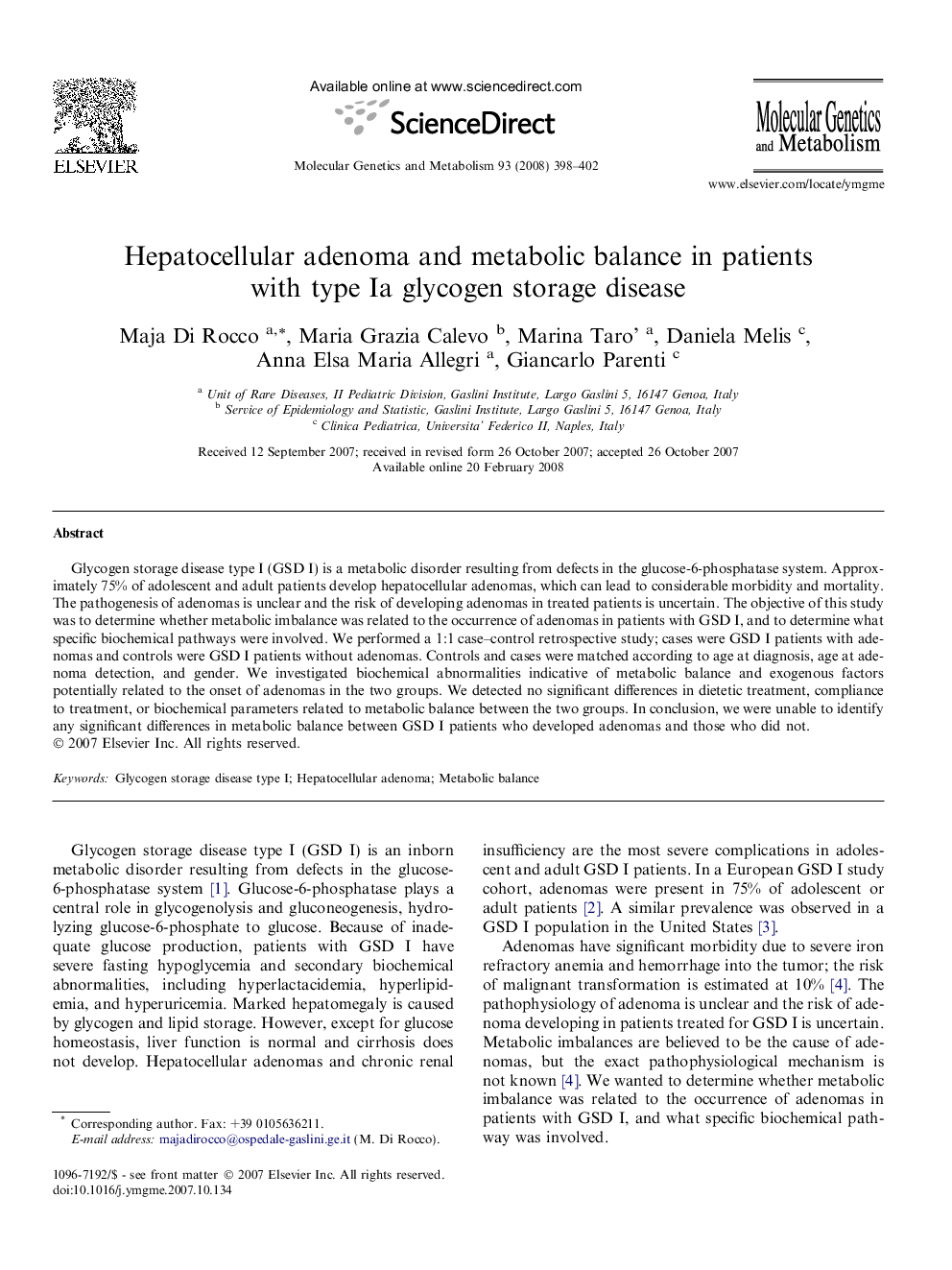| Article ID | Journal | Published Year | Pages | File Type |
|---|---|---|---|---|
| 1999446 | Molecular Genetics and Metabolism | 2008 | 5 Pages |
Glycogen storage disease type I (GSD I) is a metabolic disorder resulting from defects in the glucose-6-phosphatase system. Approximately 75% of adolescent and adult patients develop hepatocellular adenomas, which can lead to considerable morbidity and mortality. The pathogenesis of adenomas is unclear and the risk of developing adenomas in treated patients is uncertain. The objective of this study was to determine whether metabolic imbalance was related to the occurrence of adenomas in patients with GSD I, and to determine what specific biochemical pathways were involved. We performed a 1:1 case–control retrospective study; cases were GSD I patients with adenomas and controls were GSD I patients without adenomas. Controls and cases were matched according to age at diagnosis, age at adenoma detection, and gender. We investigated biochemical abnormalities indicative of metabolic balance and exogenous factors potentially related to the onset of adenomas in the two groups. We detected no significant differences in dietetic treatment, compliance to treatment, or biochemical parameters related to metabolic balance between the two groups. In conclusion, we were unable to identify any significant differences in metabolic balance between GSD I patients who developed adenomas and those who did not.
